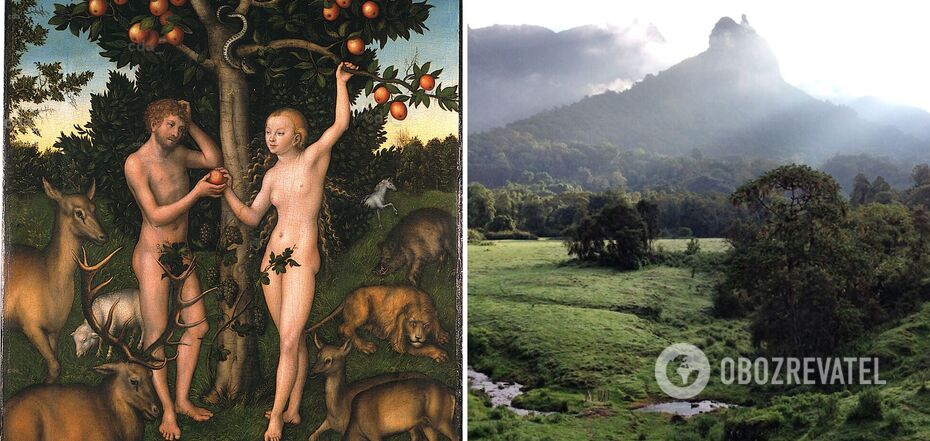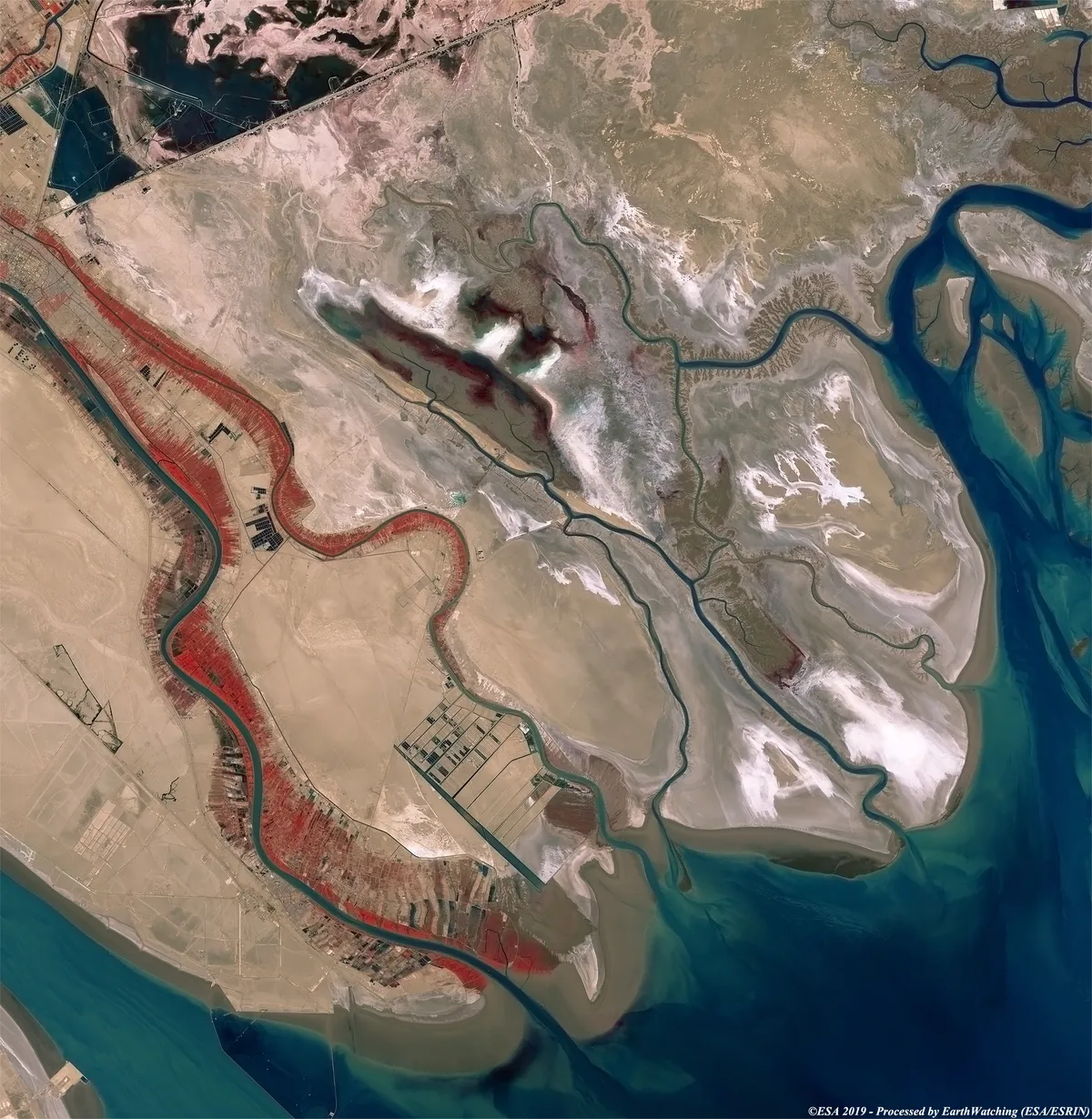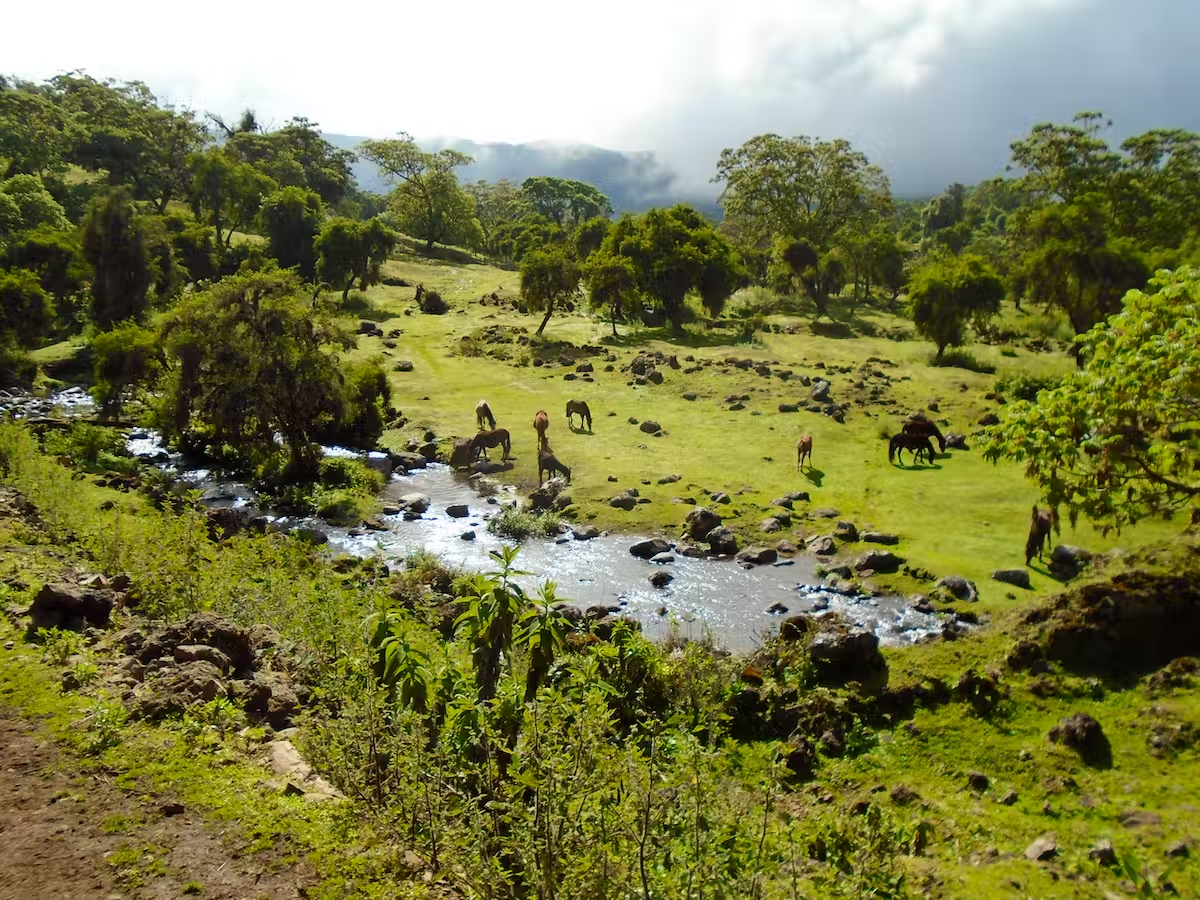Life
Where paradise may be located: scientists have made a bold assumption
Many of the places described in the Old Testament of the Bible can be easily found on a map. Jerusalem is a city in Israel, Bethlehem and Jericho are in Palestine, and Sur or Tyre is in Lebanon. But there is one geographical mystery that haunts researchers - where the Garden of Eden, where the first humans Adam and Eve lived, as described in the Scriptures, could have been located.
The IFL Science publication told us about two hypotheses that suggest in which geographical region this place could have been located. One is based on the details of the sacred texts, the other is more based on scientific data.
What do the texts say?
The Book of Genesis (2:10-14) describes the surroundings of the Garden of Eden as follows: "Out of Eden came a river to water the garden; and then it divided into four rivers. The name of one was Pison: it flows over all the land of Havilah, the land of gold; and the gold of that land is good; there is bdolach and onyx stone. The name of the second river is Gihon: it flows through all the land of Cush. The name of the third river is Hiddekel: it flows before Assyria. The fourth river is the Euphrates.
Thus, two geographical names that have survived to the present day are explicitly mentioned here - the Tigris and the Euphrates. Both rivers originate in Turkey, then flow through Syria and Iraq and into the Persian Gulf. The valley of these rivers was home to the ancient civilisation of Mesopotamia, known in the Bible as Sennacherib and later Chaldea. This area is considered to be the birthplace of Abraham, the ancestor of the Jews.
The source of the Tigris and Euphrates is located in the Armenian Highlands in Turkey. But researchers of biblical texts are more likely to agree that it is more likely to be the place where these two streams merge into one - the Shatt al-Arab River on the Iranian-Iraqi border.
As for the Fison and Gihon, it is impossible to say for sure which water bodies are meant. For centuries, theologians have believed that the Fison is the Indian Ganges and the Gihon is the African Nile, in particular its Egyptian part. But back in the 16th century, the French theologian and preacher Jean Calvin called these ideas erroneous. According to him, these rivers are too far apart. "There is a lack of people who fly over even to the Danube; as if indeed one man's dwelling stretched from the most remote part of Asia to the edge of Europe," wrote the founder of Calvinism.
Thus, the geographical version now tends to believe that the authors of the biblical myth of the origin of humans were referring to the confluence of the Tigris and Euphrates. Moreover, this fertile area was obviously known to the authors of the sacred texts.
What could science say?
While historians are looking for some of the locations described in the Bible very hard, like Sodom and Gomorrah, scientists are more sceptical about the Garden of Eden. They believe it is a fiction based on people's ideas about an ideal place where you can be happy and live without worries.
But if we combine the idea of the existence of Eden with knowledge about the origin of man, then we should consider the option of Africa. According to anthropologists, the so-called Cradle of Humankind is located about 50 kilometres northwest of Johannesburg, the largest city in South Africa. It is here that archaeologists find the largest number of human ancestral remains in the world. They managed to excavate thousands of fossil samples and among them are the bones of Australopithecus, an ape-like human whose age ranges from 3.4 to 3.7 million years.
This is our very old ancestor, because, according to scientists, modern Homo sapiens appeared about 200-300 thousand years ago. And his homeland was also Africa. Currently, the most likely hypothesis is that it was the territory of modern Ethiopia.
Well, Ethiopia's climate is indeed close to paradise - mild and humid, ranging from tropical in the north-east to sub-equatorial in the rest of the country. The temperature here ranges from 25-30 degrees Celsius all year round and there is sufficient rainfall. Part of the country's territory is still covered with rich equatorial forests, and in the south they turn into savannahs. The country is home to a huge number of species of animals and plants, including rare ones, and its soils are fertile. Therefore, Ethiopia, despite its deplorable current economic situation, can be considered a likely contender for the glory of the Garden of Eden.
Earlier, OBOZREVATEL told you about the alleged burial place of the biblical Eve and its dramatic history.
Only verified information is available on our Obozrevatel Telegram channel and Viber. Do not fall for fakes!





























